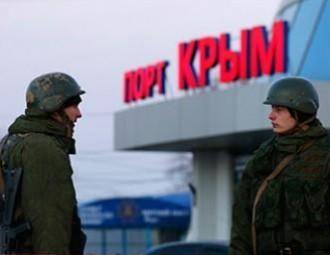Uladzimir Matskevich: Crimea serves as an excuse for Russia

Kremlin is trying to weaken Ukraine to wipe it off from the world map as a unified strong state.
Uladzimir Matskevich, the head of the Board of the International Consortium “EuroBelarus”, philosopher and methodologist in the talk with the EuroBelarus Information Service gives his assessment of the "Crimean referendum" and the reaction of the civilized world on it.
- Crimean referendum resembles that in Belarus: the turnout makes 80 per cent, and more than 90 per cent of people voted for the Crimea's annexation to Russia. The results are but predictable: Crimean peninsula is de facto occupied by Russia, and none of the countries in the world recognizes the referendum de jure. How will the world react on the new reality?
- From the juridical perspective, the results of the referendum are null and dumb. The so-called "referendum" was conducted with violation of all possible norms and rules; thus, the events of March 16 in Crimea cannot be called a referendum.
However, Russia will use the results of the "referendum" as a proof of Crimeans' strong desire to join Russia. The West does not recognize the results of the Crimean "referendum".
- Why does Russia need the occupied Crimea then?
- Russia doesn't need Crimea - Russia is only trying to weaken Ukraine to wipe it off from the world map as a unified strong state. Crimea serves as an excuse for Russia. All that Russia was doing during the past six months - interfering into Ukraine's domestic affairs during the negotiations about signing the EU Association Agreement, pushing Azarov's government to abstain from signing the Agreement, openly demanding Yanukovich to forcefully disperse Maidan, acting in Crimea - is aimed at weakening Ukraine's statehood to its full disappearance.
- Kremlin won't stop after the annexation of Crimea. Russia is ready to defend the Russian-speaking population of Kharkov, Donetsk - more than 60 thousand Russian soldiers are placed at the south-eastern Ukrainian borders. Will Kremlin dare to launch an open military intervention?
- A month ago I would say that it is highly improbable; but Kremlin’s policy is absurd to the point of the open military intervention, so we have to prepare for the most negative scenario.
- Are EU and US ready to provide real help to Ukraine?
- Both EU and US are ready for sanctions; but nobody is ready for the military confrontation with Russia, which the latter is exploiting.
Russia has several trump cards: being a member of the UN Security Council it can veto any decisions; Russia has nuclear weapon; it uses gas and oil to blackmail other countries.
- Will Kremlin require the recognition of Crimea’s annexation from the Belarusan authorities? As for Minsk it will signify the confession of guilt for the Russian military aggression in Ukraine.
- Right, it is called “shared responsibility“. That is why official Minsk didn’t hurry to join Russia’s actions. Ukraine has every chance to survive and become stronger in these hard times. So it is absolutely unacceptable for the Belarusan authorities to spoil the relations with Ukraine.
In any case, the world will change a lot after the Russia-Ukraine conflict, whatever are the results of it. And it is post-Soviet area that will change most: CSTO will be denounced, CIS will have no point to exist, the existence of Customs Union, creation of Eurasian Union and the Union State of Russia and Belarus will be questionable.
-
03.01
-
07.10
-
22.09
-
17.08
-
12.08
-
30.09








































